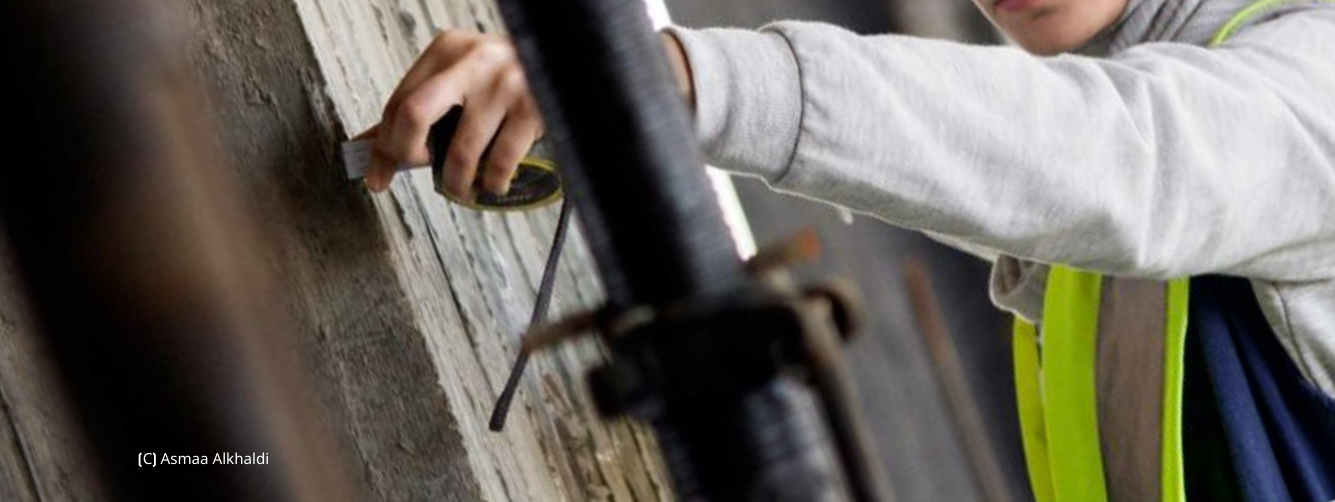Introduction:
From the beginning, MIFTAH’s approach has been to restructure the means by which public policies are formulated in Palestine, where they are based on good governance and democratic values, participation, the promotion of transparency and accountability and the right to access information. These are mainly based on the values of social justice as a result of how decisions are made and policies formulated in Palestine, which are based on centrality and a disregard for any response to the needs of citizens in formulating policies to the point where executive programs do not reflect the approaches and priorities of citizens.
The efforts made by MIFTAH to reach the stage where public policies are formulated based on support for underprivileged and marginalized sectors, especially youth and women, whereby government spending on the social sector was 37.6% of the total government spending in 2019, coming in second after the governance sector.
These efforts faced several obstacles due to the difficulty in accessing information and data or because of the lack of any institutionalization of systematic partnerships capable of involving citizens in the policy-making process in an organized manner. This would allow for more ability to provide decision-making parties with information on citizens ‘needs and translate them into fiscal policies, which is considered the best method for the fair redistribution of public funds, which guarantees the greatest possible benefit for sustainable development.
As a result of these challenges, the OXFAM-funded program “Finance for Development” constitutes an important space for the development of interventions capable of addressing the challenges to public policy formulation in Palestine. It has allowed for the development of focused interventions based on a careful assessment of the skills of those working in decision-making positions in the social sector, especially in budgeting departments.
Release of actual spending reports for the Ministry of Social Development from a gender perspective
The development of MIFTAH’s interventions took place over three stages, the first of which is the institutionalization of the participatory approach in the MoSD through developing spaces that would enable the relevant parties to become involved in the ministry’s’ strategic planning. The institutionalization process included, at the partnership level, between the MoSD directorates and departments on the one hand and institutions working in the empowerment and relief sector, on the other. The second phase reflected the institutionalization of the joint planning councils, which include representatives of direct beneficiaries of ministry services and which are comprised of youth, women’s and childhood institutions and representatives from the districts, municipalities and police and protection services.
The third stage was the culmination of this approach, through the release of monitoring reports for actual spending from a gender perspective. This was imperative for providing data to measure how much women benefited from the MoSD budgets and its services through the various programs and interventions.
The actual spending report from a gender perspective is the first of its kind in Palestine. It analysed the MoSD expenditures and its provisions for the years 2016-2018 in addition to the distribution of salaries and wages according to the gender of its employees. It also analysed the percentage of women working in upper management and in decision-making and policy formulation departments, in addition to the percentage of women benefiting from the services provided by the ministry in its various programs.
The report aimed to process and to disaggregate data from a gender perspective to be used as measurement indicators for the gaps in the ministry’s spending and budgets. It was also aimed at shedding light on the extent of proximity between the ministry’s spending policies to the needs of marginalized sectors, especially women whereby the report includes important information, crucial in the formation of more just and successful fiscal policies.
The report indicated that the MoSD salaries and wages amounted to NIS45,113,734 of its overall budget, while the salaries of its female employees was NIS23.715,295 even though the number of female employees comprises 50% of the overall number of ministry employees. Furthermore, there is only one female employee in a senior position according to the management hierarchy adopted by the ministry.
The report also monitored the figures and data pertaining to the percentage of actual spending on families headed by women, whereby 64.8% of the overall expenditures allocated for the cash assistance program. Meanwhile, NIS1,975,992 of the overall budget was spent on people with disabilities and the elderly, including women, who comprised 36% of this category. Furthermore, women were granted 39% of the allocations earmarked for the social and vocational rehabilitation program while expenditures for women survivors of domestic violence totalled NIS124,000.
The institutionalization of the participatory approach as a result of networking
This development would never have been realized if it were not for the efforts made through networking with civil society institutions and partners and their united efforts to press for the inclusion of citizens in strategic planning through the participatory approach. This was the result of meeting the interests of partners in achieving the goal of these interventions and supporting their implementation on the one hand, and the result of creating balanced professional relations with duty-bearers and holding serious discussions, the outcome of which was the adoption of democratic, participatory standards that reinforce the values of transparency and accountability.
Because of this networking, MIFTAH has greater ability to influence the way in which policies are formulated because of the ability to provide data on government spending for its programs and to reconstruct plans, which bridges the gaps in spending. It is also able to shed light on the needs of social sectors, especially women, through the redistribution of public spending. It should be noted that the needs of women were taken into consideration in the preparation of the 2020 budget. This was reflected in the increase in spending on programs from which women benefit. Therefore, the 2020 budget is more responsive to needs from a gender perspective.






